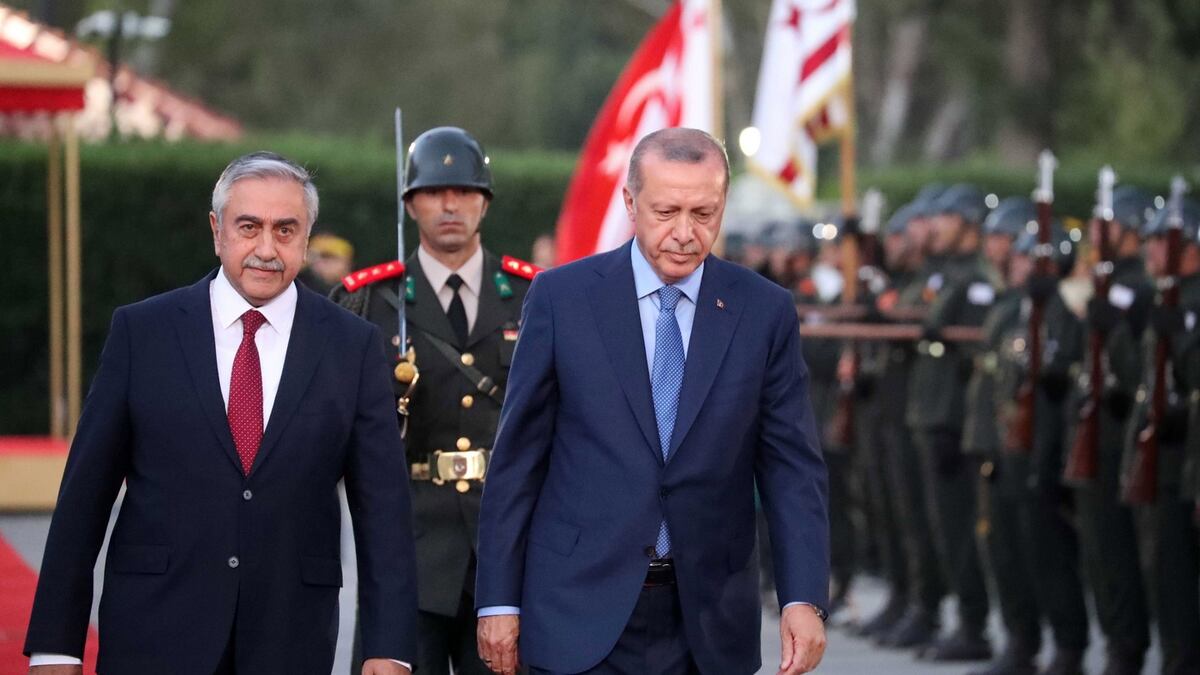Turkish President Recep Tayyip Erdogan’s call at the United Nations general assembly for the world to recognise the north as an independent country is “unlikely to succeed”, former Turkish Cypriot leader Mustafa Akinci said on Wednesday.
“It is a fact that the failure to reach a federal solution within the framework of political equality in Cyprus also stems from the Greek Cypriot side. We witnessed this firsthand during the 2004 Annan plan and at the Crans Montana conference,” he began.
However, he said, Erdogan’s call for the north to be recognised is “unlikely to succeed” because “almost everyone knows that even Turkey, which made this call, has failed to fulfil the requirements of recognition”.
To this end, he said Turkey has “prevented Turkish Cypriots from heading important Turkish Cypriot institutions”, that Turkish sports teams have “been unable to play even friendly matches with Turkish Cypriot teams”, and that Turkey has “meddled in every matter” in the north.
“For this reason, they describe the TRNC internationally as a subordinate government of Turkey,” he said.
He then pointed out that “meanwhile, the member states of the Organisation of Turkic States, which are theoretically expected to be the closest to recognition, are opening embassies in the south, not the north”.
“Therefore, it is clear that this rhetoric serves only one purpose: to let time pass until the idea of us becoming a province [of Turkey] takes root. We shall see if it is possible to halt this trend, given the changing demographics and electorate, and the interventions which are beginning to impact the election, even if not yet on the same scale as last time,” he said.
He added, “of course, stopping this trend is not limited to election results alone”, but that “along with many other factors to consider, what will play out will also be decisive”.
The election to which he was referring was the Turkish Cypriot leadership election, which will see incumbent Turkish Cypriot leader and two-state solution advocate challenged by opposition-backed Tufan Erhurman, who advocates for a federal solution.
Akinci was defeated by Tatar at the last election in 2020, and alleged both during and after that year’s campaign that the Turkish government fought the election on the side of Tatar, alleging that the Turkish embassy in Nicosia was used as an “election headquarters”.
Turkish ambassador in Nicosia Ali Murat Basceri had responded in kind at the time, saying Akinci’s accusations had “no basis in reality”
Akel, meanwhile, on Wednesday described Erdogan’s words as “unacceptable demands against our homeland” and said he had “repeated positions which directly conflict with international law and UN resolutions”.
“No matter how many times Erdogan repeats these demands, they will never be accepted by the Cypriot people, because such a development will be the beginning of new suffering for Cyprus and for all Cypriots,” it said.
It added that “the answer” to Erdogan’s statements “cannot be either compromise with the status quo of partition and occupation or the abandonment of the goal of resolving the Cyprus problem”.
“The answer must be absolute clarity about the Greek Cypriot side’s readiness for a bizonal, bicommunal, federal solution with political equality … Only the solution of the Cyprus problem, the liberation and reunification of Cyprus and its people can guarantee a future of lasting peace and security for the entire island and for all Cypriots,” it said.
In his speech, Erdogan had declared that a solution to the Cyprus problem “cannot be built on the federal model, which has been attempted numerous times before but failed due to the Greek Cypriot side’s uncompromising stance”.
“There are two separate states and two separate peoples on the island of Cyprus. Turkish Cypriots are equal owners of the island and cannot accept being a minority. The international community must end the unjust isolation to which the Turkish Cypriots have been subjected for half a century,” he said.
As such, he said, “I reiterate the call I made at the last three United Nations general assemblies”.
“I invite the international community to recognise the Turkish republic of northern Cyprus and to establish diplomatic, political and economic relations,” he said.






Click here to change your cookie preferences